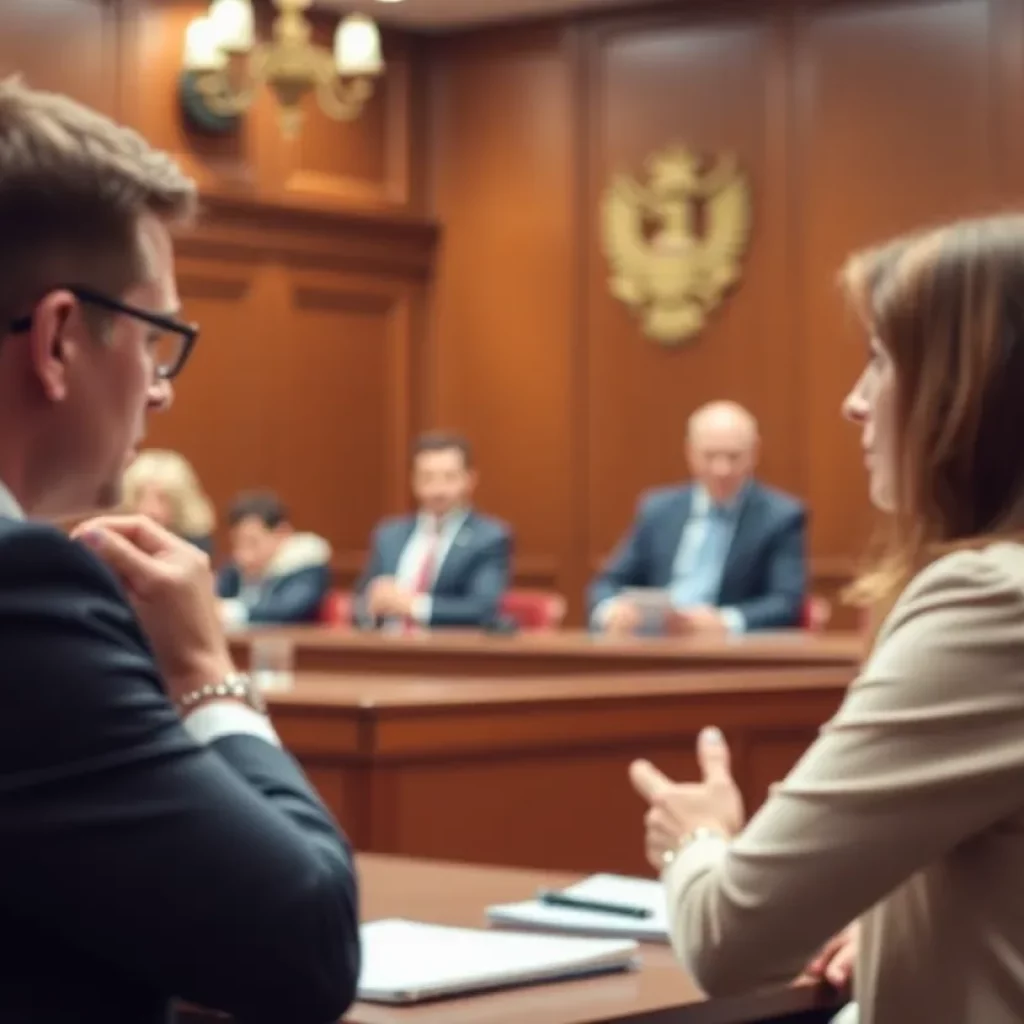News Summary
The Colorado Supreme Court has set a new precedent in government negligence cases, mandating that plaintiffs provide a reasonable probability of success in lawsuits against public entities. This decision stems from a slip-and-fall incident involving a woman at the Jefferson County courthouse, where the court emphasized the necessity of substantial evidence for claims to proceed. The ruling has implications for potential claimants and reshapes the landscape of litigations involving slip-and-fall incidents in public places, balancing the rights of injured parties with protections for governmental entities.
Colorado Supreme Court Sets New Precedent in Government Negligence Cases
The Colorado Supreme Court recently delivered a significant ruling concerning lawsuits against government entities for personal injuries. This decision stems from the case of a woman who slipped and fell in the Jefferson County courthouse, raising pertinent questions about negligence and governmental immunity.
The Incident That Sparked the Lawsuit
In March 2019, Krista Dozier experienced a slip-and-fall accident when she lost her footing on a puddle of water in the Jefferson County courthouse. The water spill had been reported to courthouse staff only minutes before the incident, setting the stage for a legal battle over the county’s response time and liability. Dozier filed a lawsuit against Jefferson County, claiming that the county was at fault for not promptly addressing the water spill, which led to her injuries.
The Legal Journey Begins
Initially, a district court judge dismissed Dozier’s lawsuit, ruling that Jefferson County had not been afforded a reasonable opportunity to address the spill, thereby maintaining its governmental immunity. The conclusion was clear: in the eyes of the court, the county acted appropriately within the constraints of the situation, having been alerted to the danger just moments before the accident occurred.
Determined to continue her pursuit of justice, Dozier appealed the ruling. The Colorado Court of Appeals allowed her case to progress, notably without requiring evidence to demonstrate how long the puddle had been present or the delay in its cleanup.
The Supreme Court’s Landmark Decision
However, the definitive turning point came when the Colorado Supreme Court intervened, addressing the crucial aspect of the Colorado Governmental Immunity Act (CGIA). Under the CGIA, public entities and employees are protected from lawsuits unless the plaintiff can prove specific criteria, including the existence of a dangerous condition that posed an unreasonable risk, known or should have been known by the government, and directly resulted from governmental negligence.
The Court mandated that plaintiffs must show a reasonable probability of success at trial, elevating the threshold from merely possessing a chance of success. This requirement reflects a significant shift in how lawsuits against public entities may be evaluated moving forward.
Implications for Future Cases
For Krista Dozier, the ruling had far-reaching consequences. The Court expressed skepticism regarding the likelihood that Jefferson County could have remedied the situation in time to prevent her fall. This conclusion reinforced the notion that, in similar slip-and-fall cases involving government entities, a plaintiff must provide substantial initial evidence of negligence to avoid dismissal of their case.
The Supreme Court’s ruling also brought forth varied reactions from legal professionals. While Dozier’s attorney criticized the decision for giving more power to the government in dismissing cases early in the litigation process, the county’s legal counsel supported the clarity the ruling provided concerning government liability.
A Delicate Balance
This ruling sets a new precedent that emphasizes the need for plaintiffs to demonstrate a solid foundation of evidence before their claims can proceed to trial. As courts navigate the intricate landscape between ensuring fairness for injured parties and maintaining protections for public servants and taxpayer interests, this decision exemplifies the judiciary’s role in addressing these competing priorities.
The Colorado Supreme Court’s recent ruling not only impacts potential claimants like Dozier but also shapes the trajectory of future litigations involving slip-and-fall incidents in public settings, reinforcing the necessity of a rigorous evidentiary standard at the outset of such cases.
Deeper Dive: News & Info About This Topic
HERE Resources
Supreme Court to Review Military Contractor Liability Case
Georgia’s Tort Reform Revolution: What Lawyers Need to Know
The Weinstein Firm: A Go-To Lawyer for Car Accident Victims in Atlanta
Lawyer Fights for Justice in Asbestos Struggle
The Ongoing Asbestos Crisis: Calls for Legal Accountability
Legal Turmoil Shuts Down Asbestos Clinic in Libby, Montana
Navigating Tupelo’s Road Dangers: A Lawyer’s Insight
Landmark Personal Injury Verdict by Top Lawyers in Martinez
Understanding Personal Injury Claims: Insights for Albany Residents
Colorado’s Legal Titans: 2025 Personal Injury Law Leaders
Additional Resources
- Denver Gazette: Colorado Supreme Court Sets New Precedent in Government Negligence Cases
- Wikipedia: Governmental Immunity
- Denver Gazette: Colorado Court of Appeals Overturns Government’s Negligence Immunity Ruling
- Encyclopedia Britannica: Negligence
- Denver Gazette: Jefferson County Slip and Fall Case Supreme Court Ruling
Author: STAFF HERE CHARLESTON
The CHARLESTON STAFF WRITER represents the experienced team at HEREcharleston.com, your go-to source for actionable local news and information in Charleston, Charleston County, and beyond. Specializing in "news you can use," we cover essential topics like product reviews for personal and business needs, local business directories, politics, real estate trends, neighborhood insights, and state news affecting the area—with deep expertise drawn from years of dedicated reporting and strong community input, including local press releases and business updates. We deliver top reporting on high-value events such as the Spoleto Festival USA, Charleston Wine + Food Festival, and the MOJA Festival. Our coverage extends to key organizations like the Charleston Metro Chamber of Commerce and the Charleston Museum, plus leading businesses in tourism and maritime industries that power the local economy such as South Carolina Ports Authority and the Charleston Visitor Center. As part of the broader HERE network, including HEREaiken.com, HEREbeaufort.com, HEREchapin.com, HEREcharleston.com, HEREclinton.com, HEREcolumbia.com, HEREgeorgetown.com, HEREgreenwood.com, HEREgreenville.com, HEREhiltonhead.com, HEREirmo.com, HEREmyrtlebeach.com, HEREnewberry.com, HERErockhill.com, HEREspartanburg.com, HEREaustin.com, HEREcollegestation.com, HEREdallas.com, HEREhouston.com, and HEREsanantonio.com, we provide comprehensive, credible insights into South Carolina's dynamic landscape.










